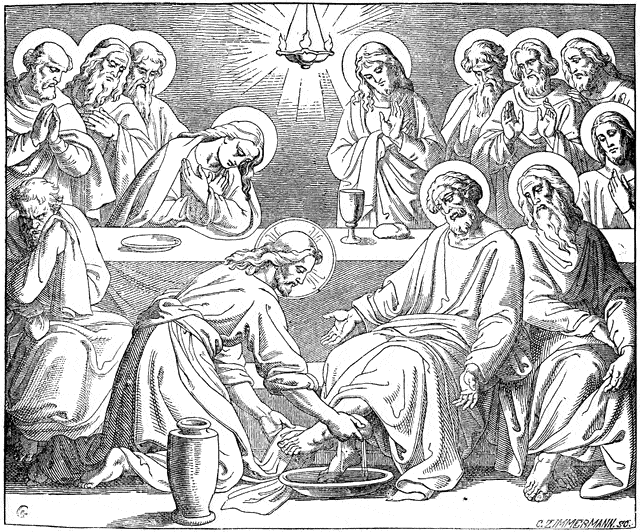
|
In our land today there are so many marriage problems; divorce increased 109 percent from 1962 to 1974! In each divorce there is a violation of God’s law involved. That being true, then souls are in danger. In addition to that, hearts are saddened in each and every case of divorce. Therefore, I wish to look at this subject, challenging our minds to consider the matter seriously. I hope that we may be able to better understand the subject, so that we may keep ourselves as God would have us and, then, possibly to assist others to avoid the dangers and heartache. I am well aware of the emotional aspect of this subject and the difficulty of discussing it objectively. However, I challenge each reader to consider the concept and the consequences as objectively as possible. First, try hard to understand the idea-what is involved and the basis for it; secondly, evaluate it which can be done only after one really and accurately understands it; thirdly, think in terms of individual and congregational response to the teachings. It is not an easy subject to deal with, regardless of the position that you hold or the approach you choose. The hardness is due to these facts: (1) so many people are involved; (2) it deals with one of the most important relationships of mankind Yet these factors make it even more reasonable that we try hard to understand and act rightly. 1. God does have a law, regarding marriage. Some deny that we are under “any law” today. They proclaim loudly that we are under “grace.” They can and do point to the scriptures, which on the surface seem to support their view: “. . . for ye are not under the law, but under grace” (Rom. 6:14). Other passages Gal. 2:16; Rom. 5:20-21; seem to support that idea. However, before one accepts that proposition, I would refer him to some other passages which show that this view is not correct: “. . . (being not without law to God, but under the law to Christ,) that I might gain them that are without the law” (1 Cor. 9:21). “Bear ye one another’s burden, and fulfil the law of Christ” (Gal. 6:2). “But whoso looketh into the perfect law of liberty, and continueth therein, he being not a forgetful hearer, but a doer of the work, this man shall be blessed in his deed (Jas. 1:25). God’s grace is extended through teachings (Tit. 2:11-12; Acts 20:32). That grace that brings salvation has appeared and it teaches us to deny some things and to do others. The word of His grace is a source of strength by which we as Christians are to build. That book, which is a part of His grace, will be the standard by which we are judged (Jn. 12:48; Jas. 2:12). So, it is a “perfect” law and it gives freedom; thus it is a book or law of “liberty.” He who will reject that and continue to proclaim that we are not under law but under grace is not going to be helped by God’s grace, until and unless he has a change of heart. God’s law on marriage consists of all He has said on the subject that is applicable today! Therefore, we need, I suggest, to gather all that He has said on the subject and then separate that which is not applicable today. For example, we see from Matt. 19:8 that some things were given because of hard hearts; likewise, in 1 Cor. 7:26 we are told that some things were for the “present distress;” thus they would not be applicable today. Passages that are to be considered as being in this law are: Gen. 2:24-25; Matt. 19:4-9; Mk. 10:2-12; Lk. 16:18; Rom. 7:2-3; 1 Cor. 7:1-6. Other passages may be relevant too. But, surely these passages are adequate to convince the unprejudiced mind that we are under a “law” today. It is the law of Christ. Some of the main points of that law then are: (1) One male and one female being joined together with God having a part in making and establishing that relationship (Matt. 19:6; Mk. 10:9). They are to leave father and mother and cleave unto one another and this is to be for life; (2) There is a three-fold purpose in marriage. Companionship is the first mentioned (Gen. 2:18). Procreation-bearing children-is a second purpose to be achieved in marriage (1 Tim. 2:15; 5:14). To prevent immorality is a third reason for marriage (1 Cor. 7:2-5). (3) Not to put away one the other in the marriage relationship is an important part of the Lord’s Law for man today (1 Cor. 7:10). From the above we conclude that God does have a law for people today to govern and regulate men and women in this primary relationship. This relationship is the most important of all relationships which every person is a part of in our society. This relationship functions to mold and shape the character of each individual; as the family goes, so goes the society. God, being concerned about the people, their state here and now, and their eternal destiny, has given rules, laws, or regulations to assist man in his’ character-building and earthly behavior which affects his whole being both temporarily and eternally. Scriptures are violated both positively and negatively when a divorce occurs! Jesus says if a man puts away his wife, saving for the cause of fornication, he causes her to commit “adultery” (Mt. 5:32). He also says that if a man puts away his wife, except it be for fornication and marries another, he commits adultery and he who marries the one put away commits adultery (Matt. 19:9). In Matt. 5:32 when Jesus said that when a man puts away his wife without fornication he causes her to commit adultery, He evidently was saying that she is placed in a condition that is very likely to cause her to remarry and thus “commit” adultery. Some have tried to make the Lord say the moment that a woman is put away for no cause of her own she is guilty of adultery. That is neither reasonable nor scriptural. Paul, expanding somewhat upon what Jesus had said, in I Cor. 7 said that neither the husband nor the wife is to “depart” (v. 10). “But,” he continued, if a departure does take platc, then “let her remain unmarried, or be reconciled to her husband; . . .” (v. 11). The same principles apply to the husband, as is stated in the last clause of the verse. He, also, deals with the believer and the unbeliever’s relationship and obligations and privileges (vs. 12-16). The believer is obligated to remain in the relationship with the unbeliever if the unbeliever wishes to retain this relationship. However, each individual is to place the Lord first (Matt. 10:37-39; Lk. 14:25-33); if one cannot maintain this relationship and serve the Lord too, then he is to choose to serve the Lord. The believer is not to “depart” from his unbelieving spouse, but if the unbelieving spouse depart for this reason, then the believer is to remain faithful to God and allow the unbeliever to “depart.” If a spouse dies, the living can remarry “only in the Lord” (1 Cor. 7:39; Rom. 7:2-3). With this information before us, I suggest that the following are violations of God’s law on marriage. (1) Pre-marital sex, which is called “fornication” in the scriptures, is a violation because marriage is the only acceptable place for sexual activity. (2) Extra-martial sex is a violation because it brings in a person other than the two that have the rightful duty and privilege to each other. (3) Post-maritial sex is condemned for the same reason stated above: God allows sexual activity only between a man and woman who are married to each other. (4) Homosexual activities are condemned; they are violations of God’s law on marriage which approves of a male and female being joined together so as to have sexual activity. All of these acts are engaged in by many in our land today, and some “religious teachers” have spoken out in favor of accepting people into the fellowship of the saints who so act. III. Consequences of the violations: To violate these rules, any one or all of them, is to be guilty of sin which causes a soul to be lost (1 Cor. 6:9-11; Eph. 5:3-5; Heb. 13:4; Gal. 5:19-21). These passages clearly state that any of these violations is a transgression and will keep one from heaven, unless they are forgiven! To have the forgiveness of sins, one must meet God’s requirements; His terms of salvation. If one is a child of God and violates any of these laws, he must: (1) repent of his sin; (2) he must confess that sin; (3) he must ask God .to forgive him (Acts 8:17-24; 1 Jn. 1:5-10). If one is not a child of God, to be forgiven of his sin, he must: (1) believe in Jesus Christ (Jn. 8:24); (2) repent of his sins (Acts 17:30-31); (3) confess his faith in Jesus Christ (Rom. 10:9-10; Acts 8:36-39); (4) be baptized in water for the remission of sins, to have them washed away by the blood of Christ, to become a member of the body of Christ (Acts 2:37-41; 22:16; 1 Cor. 12:13). Unless God’s terms of salvation are complied with, a man’s sins will remain with him till the judgment. And if they are not forgiven prior to that time, they’ll cause us misery for an eternity (Rev. 22:11; 20:12-15). Beloved, it is clear that this subject is one of eternal importance. I pray that you and I will search the scriptures and our lives to see if we are clean in the eyes of God because we have met His terms of pardon. If we have not, then we need to be persuaded to commit ourselves to His will. Having done that, then we need to go to work helping others to gain the knowledge and then the faith necessary to comply with His will. Remember that His grace has brought us the revelation of His word and His power and goodness has preserved it for us. However, we must read, understand, and apply it in our lives if we are to profit from it. |


